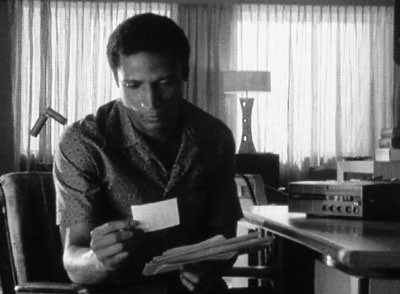
Image courtesy David Zwirner
The worst of the web, and about five million other lists will be published here over the course of the week, but before we get into all of that, over at The Reeler I’ve written a review of Stan Douglas’s exhibition, Inconsolable Memories. The work I discuss is currently on display at the Studio Museum of Harlem, which will overlap the opening for his latest film, Klatsassin at David Zwirner, on January 10th.
It took me three days to figure out what Stan Douglas’s exhibition at the Studio Museum of Harlem, Inconsolable Memories, is about, which places it in the same company as David Lynch’s Mulholland Drive. I harbored some initial reluctance to let that bit of information out of the bag — of course, you always want to sound as though you are so cultured no reference goes by you — but it wasn’t long before I came to the conclusion that even with my hard-earned understanding of the piece, I wasn’t going to fool anyone into believing that this came so easily. There may be some audience members who didn’t have to immediately run home, rent the movie the exhibition is based on, Google about 500 key terms and then discuss the show with three of their closest friends before forming any kind of cogent thoughts on the work, but I’m not one of them.
For the two remaining readers dying to do this much homework for the sake of understanding an art piece, I have good news: It’s worth your trouble. Douglas’s two-part exhibition of photographs and video uses Tomás Gutiérrez Alea’s 1968 film Memories of Underdevelopment as a starting point to explore the socio-political history of Cuba, while employing his mastery of technology to investigate the role memory plays not only in the construction of timelines, but the medium itself. The result is a surprisingly complex portrait of sexual relationships, race and national identity. Intermittently narrated by the psychologically stunted but erudite protagonist Sergio Corrieri, Alea’s original film relates a lack of social awareness on an individual level to that of the culture as a whole. Sergio loses his job as a journalist and eventually has his apartments confiscated in the middle of the Cuban Missile Crisis; while he occasionally seems to have the awareness that he should leave Cuba, he irrationally remains unwilling to do so. His relationships fall apart, and he likens the failures he sees in the women he partners with to those of the country.
To read more follow this link.


Comments on this entry are closed.